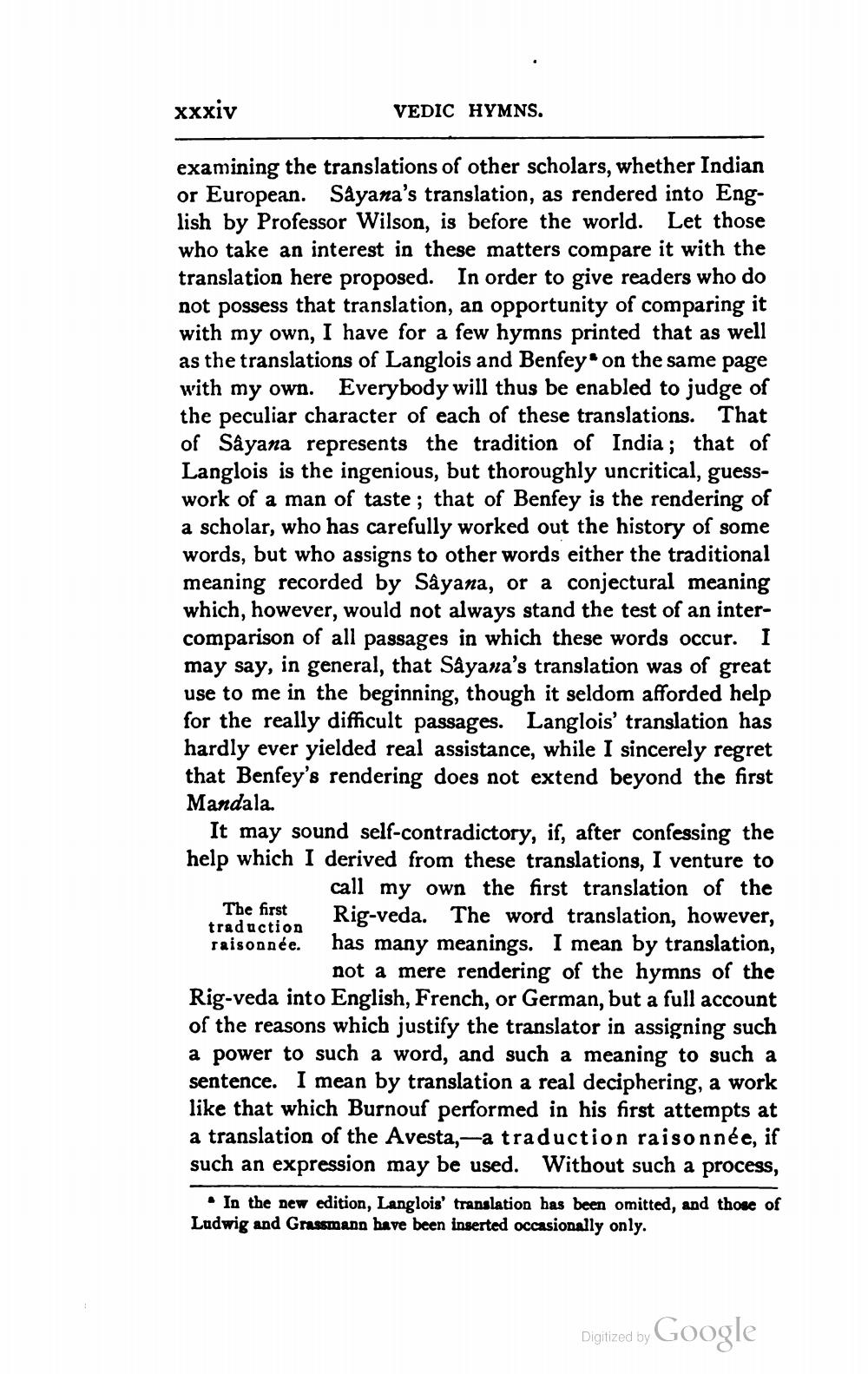________________
xxxiv
VEDIC HYMNS.
examining the translations of other scholars, whether Indian or European. Sâyana's translation, as rendered into English by Professor Wilson, is before the world. Let those who take an interest in these matters compare it with the translation here proposed. In order to give readers who do not possess that translation, an opportunity of comparing it with my own, I have for a few hymns printed that as well as the translations of Langlois and Benfey on the same page with my own. Everybody will thus be enabled to judge of the peculiar character of each of these translations. That of Sâyana represents the tradition of India; that of Langlois is the ingenious, but thoroughly uncritical, guesswork of a man of taste; that of Benfey is the rendering of a scholar, who has carefully worked out the history of some words, but who assigns to other words either the traditional meaning recorded by Sâyana, or a conjectural meaning which, however, would not always stand the test of an intercomparison of all passages in which these words occur. I may say, in general, that Sâyana's translation was of great use to me in the beginning, though it seldom afforded help for the really difficult passages. Langlois' translation has hardly ever yielded real assistance, while I sincerely regret that Benfey's rendering does not extend beyond the first Mandala.
It may sound self-contradictory, if, after confessing the help which I derived from these translations, I venture to call my own the first translation of the Rig-veda. The word translation, however, has many meanings. I mean by translation, not a mere rendering of the hymns of the Rig-veda into English, French, or German, but a full account of the reasons which justify the translator in assigning such a power to such a word, and such a meaning to such a sentence. I mean by translation a real deciphering, a work like that which Burnouf performed in his first attempts at a translation of the Avesta,-a traduction raisonnée, if such an expression may be used. Without such a process,
The first traduction raisonnée.
In the new edition, Langlois' translation has been omitted, and those of Ludwig and Grassmann have been inserted occasionally only.
Digitized by Google




